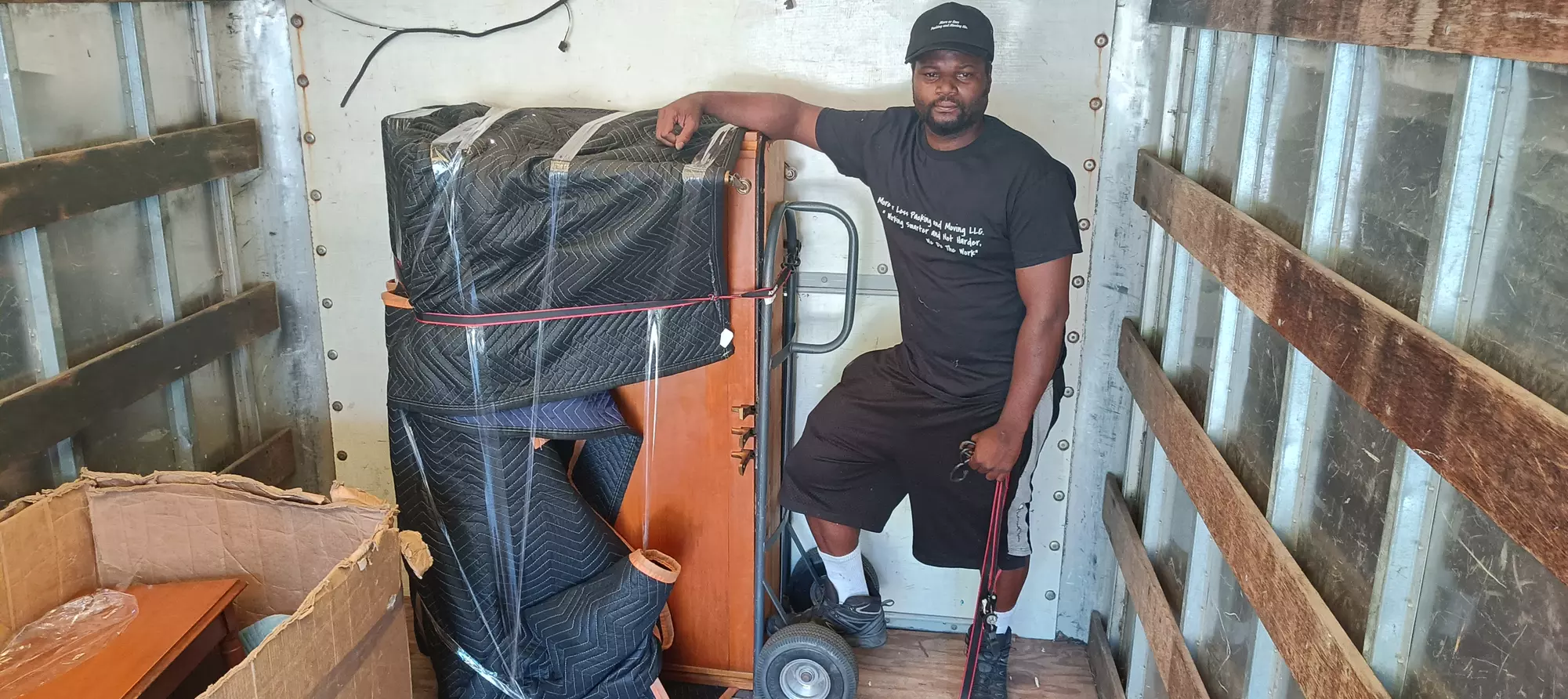Understanding the Inclusions of moving and Freight Forwarding worldwide of Global and residential Delivery
Guiding via the intricacies of moving and Freight forwarding can be tough. Both procedures entail unique procedures and demands that are vital for successful transport. Comprehending the distinctions in logistics, documents, and risk administration is necessary for individuals and services alike. This expertise can considerably influence the efficiency and security of deliveries. Many are unaware of the details components that affect the general experience and end results. What aspects should one consider to guarantee a smooth changeover?
The Basics of moving and Freight Forwarding
moving and Freight forwarding are fundamental parts of the worldwide logistics industry. They promote the transfer of goods and personal belongings throughout international and residential boundaries. moving mainly entails the relocation of family members or people, including commercial and household requirements. It generally consists of packing, filling, transferring, and unboxing items at the destination. In comparison, Freight forwarding is concentrated on the shipment of items, frequently in bulk, making use of numerous transport modes, such as land.freight, air, or sea forwarders act as middlemans, working with logistics to ensure timely delivery while navigating through complicated guidelines and customizeds treatments. Both procedures require cautious planning, company, and interaction to assure efficiency and decrease disturbances. Understanding these principles is essential for anybody associated with logistics, as they prepared for even more advanced elements of delivery and transportation management.
Trick Parts of Freight Forwarding Solutions
Freight forwarding solutions encompass several crucial elements that ensure smooth transport of products. Key obligations of Freight forwarders consist of handling logistics, collaborating deliveries, and taking care of personalizeds clearance. Additionally, understanding important shipping documentation is crucial for conformity and effective movement of cargo.
Freight Forwarder Responsibilities
A trusted Freight forwarder plays a vital role in coordinating the transportation of products, making sure that shipments are taken care of effectively and in compliance with laws. Their duties encompass numerous crucial jobs, consisting of selecting ideal transport paths, negotiating Freight rates, and handling logistics. They act as middlemans in between providers and carriers, guaranteeing that cargo is effectively packaged and labeled for risk-free transportation. Furthermore, Freight forwarders track shipments, supplying updates to customers concerning the standing and expected shipment times. They likewise assess and take care of dangers related to transport, suggesting insurance policy choices as required. By promoting interaction and documents, Freight forwarders improve the delivery process, lowering potential delays and enhancing total supply chain efficiency.
Shipping Documentation Fundamentals

Understanding Custom-mades Clearance and Documents
Precise documents is vital in the custom-mades clearance process, as it ensures conformity with different laws. An introduction of customizeds regulations highlights the intricacies faced by shippers and Freight forwarders. Typical clearance challenges can greatly affect shipment timelines and prices, making understanding this facet necessary for effective logistics.
Relevance of Accurate Paperwork
Steering through the complexities of global shipping calls for a keen understanding of customizeds clearance and the important duty of paperwork. Accurate documents is vital for making sure that deliveries follow policies and reach their locations immediately. Correctly prepared papers, consisting of expenses of lading, industrial billings, and packaging listings, assist in smooth communications with personalizeds authorities. Mistakes can bring about delivery delays, penalties, or also confiscation of goods. Detailed paperwork aids in monitoring shipments and settling disagreements. Subsequently, companies involved in moving and Freight forwarding need to prioritize meticulous documentation methods to navigate the elaborate landscape of global delivery efficiently. This diligence not only streamlines operations but likewise improves customer fulfillment by making certain timely shipment.
Personalizeds Rules Overview
Guiding customs regulations is an essential aspect of global profession that directly affects the success of moving and Freight forwarding procedures. Efficient customs clearance calls for an understanding of different policies, consisting of tariffs, responsibilities, and import/export limitations. Exact documents is crucial, as it assures that site compliance with legal demands and helps with the effective motion of products across boundaries. Secret papers usually consist of industrial billings, packaging lists, and costs of lading, which give comprehensive info concerning the shipment. Additionally, customs brokers play an essential function in steering intricate guidelines, acting as intermediaries in between carriers and custom-mades authorities. By preserving detailed knowledge of customizeds procedures, services can greatly minimize hold-ups and reduce costs linked with global delivery.
Usual Clearance Challenges
Various challenges can develop throughout the customs clearance process, usually complicating the activity of items throughout boundaries. One considerable concern is inadequate documents, which can lead to penalties and hold-ups. Merchants and importers have to guarantee all needed documentation, such as invoices, packaging checklists, and certifications of origin, is accurate and full. Additionally, discrepancies in valuation can set off examination from customs authorities, leading to added responsibilities or assessments. Language obstacles may also pose obstacles, as miscommunication can bring about misconceptions pertaining to regulations. Additionally, modifications in custom-mades policies can create complication, requiring continuous vigilance by carriers. Inevitably, getting over these clearance tests needs thorough preparation and a clear you can find out more understanding of custom-mades needs to help with smooth international transactions.
Packaging and Classifying Requirements
Although often overlooked, packaging and labeling requirements play an important role in the shipping procedure, ensuring that goods are protected and quickly identifiable throughout their trip. Appropriate product packaging safeguards items from damage throughout transportation, while also promoting efficient handling and storage. Using suitable products, such as bubble wrap, foam, or sturdy boxes, can protect against damage and loss.Labeling is similarly essential. Clear and exact labels share vital details, including the destination, managing directions, and materials. Tags must abide by regulations specific to residential and international shipping, which might include hazardous materials recognition or personalizeds declarations.Moreover, standard labeling practices streamline the tracking process and enhance overall logistics performance. By sticking to product packaging and labeling demands, organizations minimize the threat of delays, damages, or misdelivery. Eventually, these techniques contribute substantially to the success of moving and Freight forwarding procedures, making certain a seamless shipping experience for all parties included
Tracking Shipments: Value and Techniques
Efficient packaging and labeling set the structure for successful delivery management, yet tracking deliveries is similarly necessary in the delivery process. Shipment monitoring supplies real-time visibility, which aids customers and companies check the development of their products. This openness enhances client contentment, because customers can stay educated concerning shipment timelines and any potential delays.Several techniques promote reliable monitoring. Barcode scanning is a common method, utilizing distinct identifiers to check plans throughout their journey. Furthermore, GPS technology enables precise place tracking, enabling prompt updates and boosted logistics management. Lots of delivery companies now provide electronic platforms and mobile applications that supply customers with simple access to tracking information.The relevance of shipment tracking can not be overstated; it minimizes the threat of shed or harmed products, improves functional efficiency, and promotes trust in between receivers and carriers. Incorporating reliable monitoring methods is essential for effective domestic and international delivery operations.
Insurance policy Options for Your Product
Safeguarding insurance coverage for items en route is a crucial factor to consider for businesses and people alike. Insurance policy options differ based on the kind of shipment, value of products, and particular risks entailed. Common read the article types consist of provider responsibility, which covers loss or damage while in transportation, and full-value insurance coverage, providing considerable insurance coverage for the overall value of the goods.Shippers may additionally take into consideration aquatic insurance policy for global shipments, shielding versus threats linked with sea transport. It is necessary to evaluate the certain requirements of the delivery and evaluate the terms and conditions of any type of policy.Furthermore, understanding exemptions and limitations is critical to avoid potential voids in coverage. Shippers need to involve with insurance policy experts to explore customized remedies that fit their distinct circumstances. Inevitably, purchasing the right insurance coverage can alleviate economic threats and give assurance throughout the delivery process.
Choosing the Right moving and Freight Forwarding Solution
When choosing a relocating and Freight forwarding solution, it is vital for businesses and individuals to very carefully evaluate their specific demands and top priorities. Variables such as the volume of items, location, and timeline play a substantial duty in this decision-making process. Researching numerous companies is a good idea; contrasting their services, prices, and customer testimonials can disclose beneficial insights.Additionally, it is necessary to take into consideration the experience and proficiency of the company in handling specific types of freight, specifically for worldwide shipments that might include personalizeds clearance. Transparency in rates, including any kind of surprise charges, must likewise be scrutinized.Furthermore, reviewing the degree of client support offered is crucial, as timely communication can alleviate issues throughout transit (international shipping). Lastly, confirming the availability of insurance coverage choices ensures that items are protected throughout the delivery procedure. By taking these steps, companies and people can make educated options that straighten with their logistics needs
Frequently Asked Concerns
What Sorts Of Item Can Be Shipped Internationally?

Exactly How Do Shipping Costs Vary Between Different Service Providers?
Shipping costs vary substantially in between providers as a result of elements such as solution speed, cargo type, range, and additional services used. Each copyright's rates design mirrors these variables, affecting general delivery costs for consumers.
Can I Ship Hazardous Materials or Perishables?
Delivering unsafe products and perishables undergoes rigorous policies. Providers usually call for specific product packaging, labeling, and paperwork. Carriers need to guarantee compliance with local and global legislations to stay clear of fines and ensure risk-free transport.
What Should I Do if My Shipment Is Delayed?
When faced with a delivery delay, one need to initially get in touch with the provider for updates. After that, evaluate any type of notifications got, analyze different services, and keep all events informed concerning the situation to minimize interruptions.
Are There Weight Boundary for Shipping Containers?
Weight limits for delivery containers vary depending upon variables like container dimension and shipping policies. Typically, conventional containers have an optimum gross weight of around 30,000 to 32,000 kgs to guarantee risk-free transportation and handling. In comparison, Freight forwarding is concentrated on the shipment of products, typically in bulk, using different transport settings, such as land.freight, air, or sea forwarders act as intermediaries, collaborating logistics to assure timely delivery while steering with facility guidelines and customs treatments. Trick responsibilities of Freight forwarders consist of taking care of logistics, coordinating shipments, and dealing with customizeds clearance. A reliable Freight forwarder plays a necessary role in working with the transport of items, ensuring that shipments are handled effectively and in conformity with laws. Efficient product packaging and labeling set the structure for effective shipment administration, yet tracking shipments is similarly essential in the delivery process. Several delivery companies now use electronic platforms and mobile applications that supply users with simple access to tracking information.The relevance of shipment monitoring can not be overemphasized; it lessens the threat of lost or harmed goods, boosts functional effectiveness, and promotes trust between recipients and shippers.